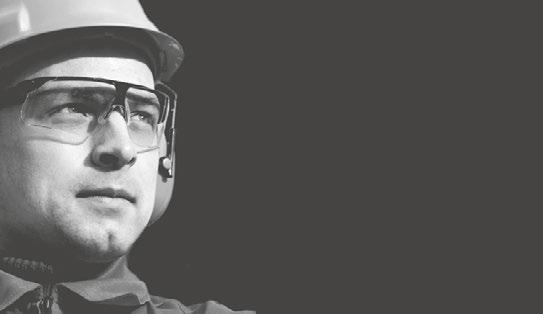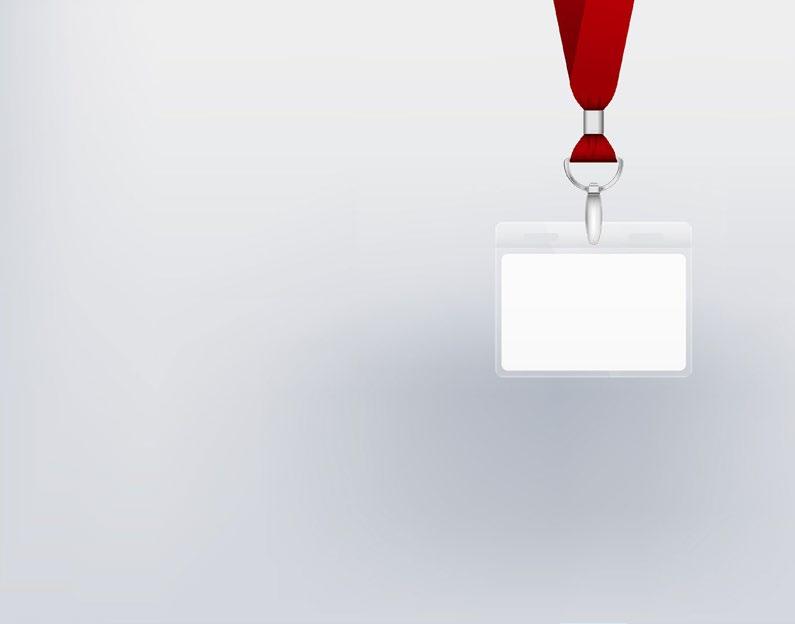
4 minute read
WELCOME FROM THE WEST TEAM
Welcome to Issue 2 of Tea Shack News Rebooted. We were delighted with the response to Issue 1 in January, with global readers spanning America to Australia. Thank you to everyone who has contacted us with ideas for articles and for all the positive feedback.
Prevention of Major Accidents
Issue 2 focuses on:
Triggered lightning p1
WHAT PART DOES COMPETENCE PLAY IN THE PREVENTION OF PERSONAL INJURY?
Prevention of Personal Injury
The most common cause of workplace injuries In 2022:
• Appreciate how your routine activities interact with barriers which keep us safe
Q2 2023, Prevention of Personal Injury p2
A day in the life of a safety rep p3 Medication and work offshore p4 Green hats – an OIM’s perspective p5
E-Obs/Workforce Engagement p6
• Enhance awareness of personal hazards and the potential for personal injuries
Evacuation Times by TEMPSC p7
• Be better equipped to recognise when a barrier has been impaired and know what action to take to report it
This a reminder that Tea Shack News is the opportunity to have your voice shared with the wider industry so whether you are part of the workforce, leadership, member companies, Unions or the HSE, we want to hear from you!
• Understand how your decisions affect the risk of major accidents
If you have any ideas or stories you’d like to share with the rest of the industry, please get in touch with editor@teashack.news and we will consider them for future issues.

Our quarterly theme topics aim to address the offshore energy sector’s most common safety concerns through collections of resources which can be used by all job roles – everyone has a part to play. To find out more about our 2023 annual themes, visit the Step Change website.
We hope you enjoy the 2nd edition of TSN Rebooted and look forward to continuing to highlight the news that matters to you. Thank you for continuing to
‘PLAY YOUR PART’
The Step Change in Safety Workforce Engagement Support Team (WEST).
• Reinforce the hierarchy of control in reducing personal risk
• Understand how your decisions affect the risk of personal injuries
This is why competence-based strategies for injury control are required, as they cover the knowledge and skills needed for injury prevention, both for the individual and their colleagues.
OPITO’s Minimum Industry Safety Training (MIST) covers a variety of hazard identification methods, for example Control of Work, Risk Assessment, Workplace Hazards, and Personal Safety. By being able to risk assess the environment, individuals can be aware of any hazards, as well as being aware of any new hazards which could occur due to changes in situations.
Whilst training is an important component of establishing competency to prevent personal injury, Competence Assurance Systems should include assessment methods appropriate to any hazards for the tasks being undertaken. Step Change in Safety’s Competence Workgroup has published the guidance, click the link: Competence Management Framework Guidance which outlines the fundamental requirements of a Competency Assurance Framework and an effective Competency Management System (CMS).
It is also important to adopt positive behavioural safety to prevent any potential injuries to yourself as well as others by reporting any potential hazards, acting on them and communicating to prevent further occurrences.
We caught up with Anj Shafiq - CRO/ Lead Production Tech and Safety Rep on the Armada Platform for Harbour Energy. Anj gives us an insight into his safety rep duties and shares how he makes sure that workers’ voices are heard.

“My job role offshore is a Control Room Operator and Production Tech. I became a Safety Rep two years ago. I volunteered to become a safety rep because I care about others’ safety and wanted to provide our workforce with a focal point to discuss any safetyrelated issues. I make sure concerns are properly recorded, collected from the workforce, and then communicated to management. I want to make sure that workers’ voices are heard, and that ultimately, their concerns are listened to and eventually dealt with. I felt I could provide an objective opinion and a confidential ear to discuss any safetyrelated issues. I consider myself a people person and quite approachable and have absolutely no qualms about asking difficult questions.
Safety meetings are held at least every 2-3 weeks with at least two safety reps and OIM present, and I will attend at least one per offshore trip. Every trip we hold a platform safety meeting with the OIM, and time is set aside after this meeting for all constituents to speak to their safety reps without management present. This is a very good opportunity for everyone to voice their concerns and for us to provide feedback and any relevant information.

Minutes from the meetings are sent to all safety reps. Each attendee would familiarise themselves with the previous minutes and any points raised by our constituents before attending the meetings.
Agenda items discussed include reviewing previous interim and safety committee meetings, outstanding actions, reviewing causes of accidents, dangerous occurrences, and recommendations, upcoming HSE management visits and any projects and activities which impact constituents and individual rep training and activities that are formulated from the Step Change Essential guides. Some of the key current topics we are discussing are the Back to Basics program, manning levels and 2+1 consultations for extra bedding in some cabins.
We also attend the three weekly ESR forum that involves the other ESR members from offshore where each platform will present a safety presentation or lessons learned topic. We then provide feedback, reflect on encourage the workforce to view our safety notice board that contains the ESR minutes and other safety notices. A VDU screen in the triage locker room will display current safety concerns.
My safety rep duties vary from reviewing observation cards and whether there are any actions I can resolve or consulting with someone who can, and if the workforce brings any issues to myself, I do my best to do research and find solutions.
I am passionate about maintaining a high standard of safety on the platform and ensuring all my colleagues return to their families as healthy as when they arrived. I enjoy the role and I am grateful that the company have supported and developed me with ongoing training. I particularly appreciate the involvement in investigations so I can communicate the causes and corrective actions back to my constituents and fellow Safety Reps to prevent re-occurrences. I feel more valued within Harbour Energy and have more of a voice to challenge the unsafe behaviours of personnel than anywhere





